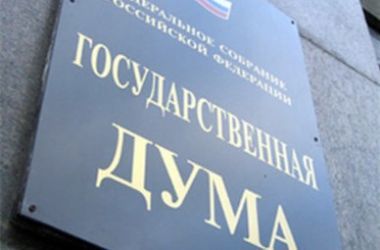The draft law on the prohibition of anonymizers and VPN adopted in first reading
 On June 23, 2017, the State Duma adopted in first reading a draft federal law “On Amendments to the Federal Law“ On Information, Information Technologies and Information Protection ”” ( pdf ), which was submitted to the Parliament on June 8, 2017. Earlier, the director of the FSB, Alexander Bortnikov, at the closed government hour asked deputies to speed up the adoption of laws banning anonymizers and regulating instant messengers.
On June 23, 2017, the State Duma adopted in first reading a draft federal law “On Amendments to the Federal Law“ On Information, Information Technologies and Information Protection ”” ( pdf ), which was submitted to the Parliament on June 8, 2017. Earlier, the director of the FSB, Alexander Bortnikov, at the closed government hour asked deputies to speed up the adoption of laws banning anonymizers and regulating instant messengers.363 deputies voted for the bill. Against: 0, Abstain: 0
The bill, which was developed by deputies Maxim Kudryavtsev (“United Russia”), Nikolai Ryzhak (“Fair Russia”), Alexander Yushchenko (KPRF), aims to increase the effectiveness of information blocking on the Internet. In the explanatory note, the authors note that in particular the achievement of the effectiveness of the application of the relevant legal norms is:
- the ability to find links to blocked resources in the search results results of search engines;
- the ability to use technologies that allow access to blocked information resources.
Accordingly, in order to increase the effectiveness of blocking, the authors of the draft law propose the following changes to the legislation:
')
- establish a prohibition to ensure the use in the Russian Federation of information and telecommunication networks, information systems and computer programs to gain access to information resources, including sites and (or) pages of sites on the Internet, which are restricted in the territory of the Russian Federation ;
- for the purpose of execution by the owners of such networks, systems and computer programs of the said prohibition to provide them with access to the information resource of Roskomnadzor, containing information about information resources, access to which is restricted on the territory of Russia;
- to establish measures of administrative coercion to ensure the implementation of the established ban:
for non-fulfillment of the requirements of Roskomnadzor to execute a ban within 30 days - restriction of access to information resources that provide access to networks, systems, computer programs used to “bypass locks”.
The bill spells out a mechanism for how Roskomnadzor identifies the owner of an information resource through which the blocking bypass tool is distributed. He is sent a request to “stop ensuring the use of networks and programs” to bypass locks. In case of insubordination, this site also falls into the list for blocking and providers are obliged to restrict access to it for a day.
The bill also applies to search engines that must refuse to issue links to sites blocked in Russia.
If the provider refuses to restrict access to the sites where the “blocking bypass” is located, he will face a fine of up to 700 thousand rubles.
The amended draft law should be submitted to the State Duma by July 2, 2017 for adoption in the second reading.
Source: https://habr.com/ru/post/357368/
All Articles